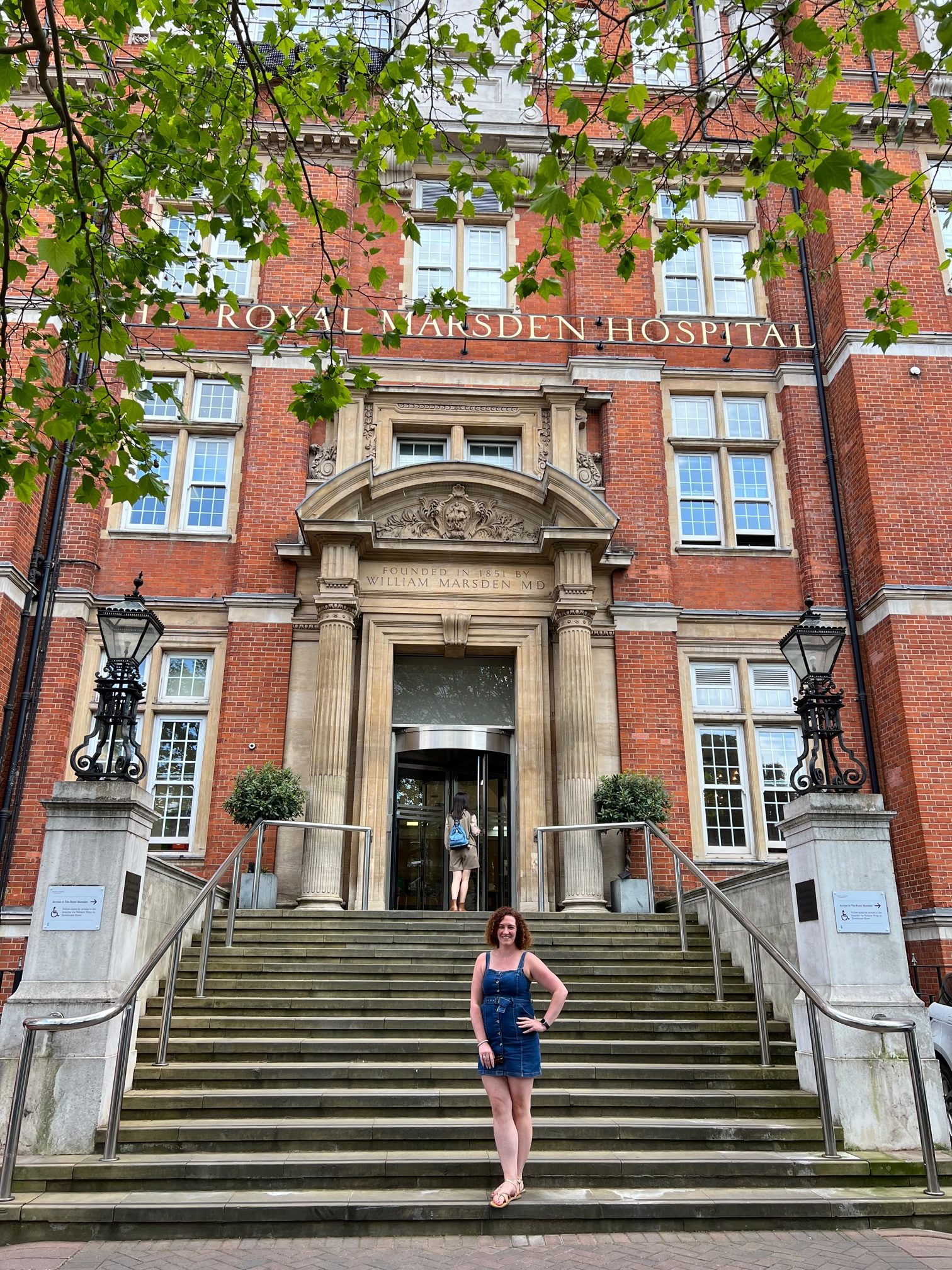I qualified as a cancer exercise specialist personal trainer with a keen awareness that I’d need to stay on my toes. Medicine is constantly changing, and oncology is no exception. Whilst I don’t offer medical advice or treatment, I do need to be aware of what the implications of a client’s treatment are, so that I can work with them safely and effectively. With that in mind, it was always my intention to regularly update my knowledge, and I recently had a fantastic opportunity to do so.
What’s a Study Day?
Typically used within a medical academic context, most of us would understand a Study Day to be a mini-conference. At this one, there was a full programme of educational talks, including a panel discussion. There was also a poster presentation, allowing attendees to share their latest research, and a prize was offered for the best one.
What was particularly nice about this day was that it was marketed to include fitness professionals. Often, we’re left out of academic conversation and development opportunities, as we’re not regarded as healthcare professionals, but I always feel that our inclusion is appropriate. We may need help with some of the most academic content, but we tend to have the greatest amount of contact time with patients and survivors, and we have to know how and when to signpost these people in other directions, so as part of a continuum of care, our participation is crucial. I couldn’t book myself a place fast enough.
Royal Marsden Patient to Private Professional
When I was diagnosed with a sarcoma in 2018 and referred to the Royal Marsden, I had only been strength training for a year. Becoming a personal trainer was nowhere near my radar. However, with treatment completed, reviews ongoing, and COVID lockdowns in force, I found myself wanting a project. When I learned about the cancer exercise specialist qualification, I knew immediately that it was for me, and managed to qualify as a personal trainer plus complete the specialist certification in a year. By the time my consultant discharged me, I’d gone from patient to pro, and was ready to support others. Returning to the hospital which had helped me in order to upskill was a surreal full circle moment, but having been treated by some of the best, it was great also to learn from them.
On the exercise oncology agenda
From the announcement of the agenda, there were two talks that I was particularly looking forward to – one about pelvic health among cancer patients, and one about cardiac impacts of treatment and how both of these things translate to barriers to exercise. Both talks were brilliant, I’m grateful to Helen Alexander for her cardiac expertise, and Michelle Lyons for her pelvic health enthusiasm!
We were also privileged to hear from colleagues in the industry who specialise in exercise programming via digital platforms, someone who’s been through the patient experience, a panel covering issues faced by those from diverse backgrounds, and much more. There was a lot to take in, and it’s definitely the most focused my brain has had to be for a while!
Top takeaways from the study day
Whilst there was a lot of brilliant information shared, I wanted to give my absolute highlights. Top of the list are two gems from the panel discussion about diversity: Royal Marsden specialist nurse, Sarah, shared that almost every patient she’s ever seen in breast clinic has asked her what they can do to support their treatment or recovery in terms of diet, but only a very small percentage ask about exercise. Whilst the latter part of this didn’t surprise me, the early part did, and I think that a huge part of this speaks to our historical diet culture mindset, among other things. This is something I’d really like to see change, and I’d encourage all practitioners to ask themselves the broader question of, “what can we do?” rather than, “can I do or change this specific element?”. From my own experience, keeping my options open has allowed me to explore more opportunities than I’d have considered.
My ears pricked up when the diversity panel mentioned phrases they’ve banned or would like to – this is something I’m familiar with! They encouraged the audience to flip around the traditional mindset of demographics being “hard to reach”, and instead remember that it’s actually services which are hard to access. We have to think about who we’re NOT seeing, and WHY that is, rather than focusing on those who DO come through our door. This is how we spot gaps and widen participation. It’s a service issue, not a user issue.
The final brilliant point I’d like to share comes from Professor Tara Rampal, who pointed out that patients aren’t “neat packages” but rather “entire ecosystems” – we must look at the whole picture in order to inform ourselves of what might be holding someone back, rather than assuming that they only have one issue to deal with. The crux of this one is listening to what the person tells you, and taking the time to get to know them fully.
If only there were more time!
The above is a fraction of what I learned during the day, proving that exercise oncology is a broad topic which has a long way to go. And that’s exciting! Patients are currently being under-served, and for me the reasoning here comes back to one thing: exercise isn’t in the conversation. If you are involved with cancer patient care, at any stage of their journey, please know and share that exercise is both safe and recommended, and that there are specialists available to help your patients.
In the meantime, I’m going to keep spreading the word too, and learning more in order to better serve those who need support.
